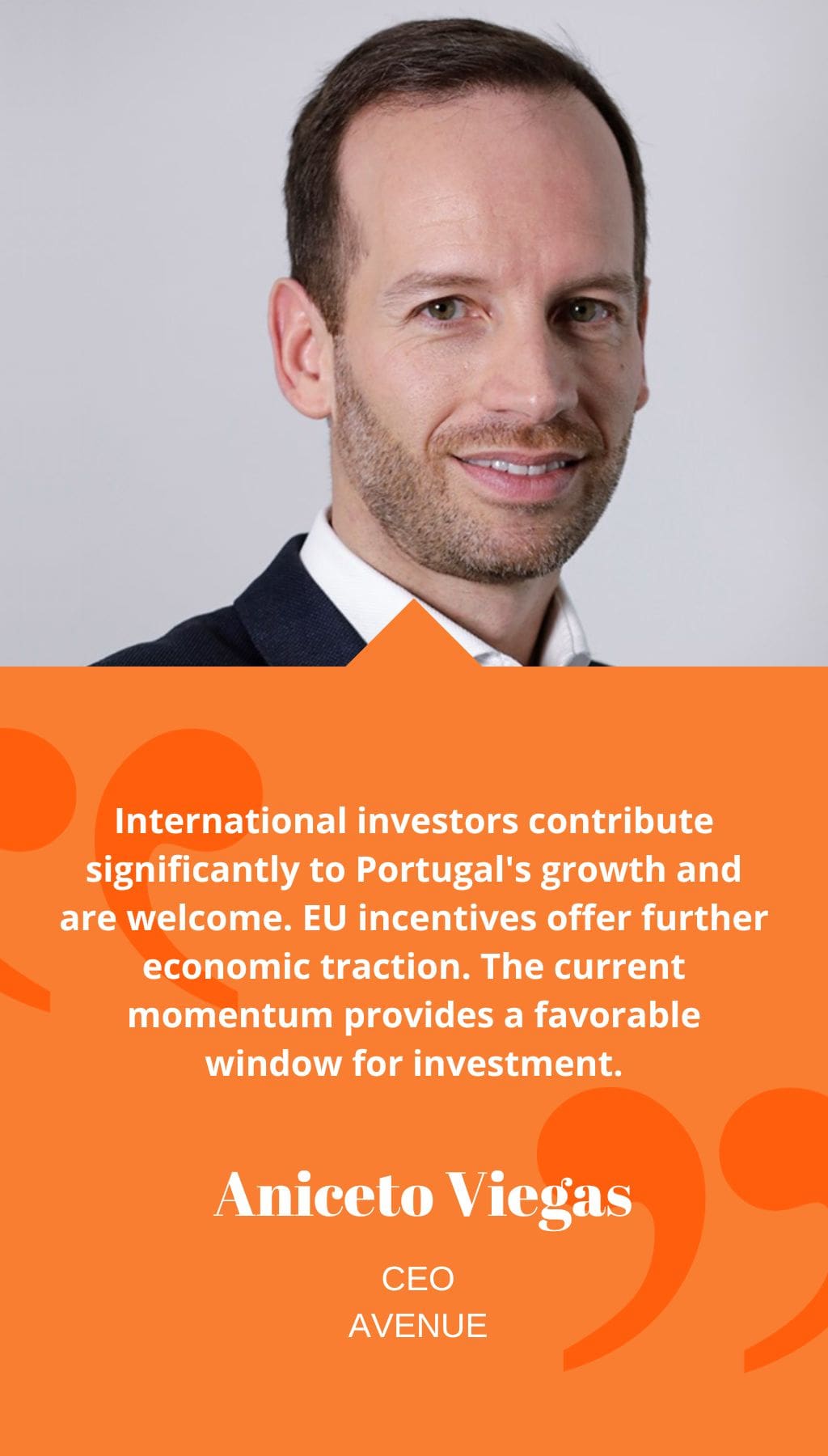
- Portugal | 20 March 2022

What were the early stages of Avenue, and how has your presence evolved in Portugal?
In 2015, post the lease law change and key structural shifts, we initiated Avenue with the objective to refurbish seven premium projects, comprising high-end residential and high street retail units in prime locations. Six were in Lisbon, one in Porto. Presently, Portugal hosts a mature market with high-quality developments, and Avenue boasts a balanced portfolio. From 2017, we expanded to include office developments, aiming for larger projects. Our flagship, the EXEO Office Campus, spans 70,000 square meters.
We’ve secured 15 developments, seven completed, six under construction, and two in conception and licensing, one of which escalates our scale further.
Comparatively, how do Lisbon and Porto stand regarding business ease and opportunities?
Lisbon presents a larger, more developed market but faces heightened competition and intricate licensing processes. Porto, leveraging its wine brand recognition, is less competitive but smaller, showing promising growth. Both cities weigh significantly for residential clients.
Before 2017, Porto lacked international interest, especially in offices, but efforts by the municipality and Invest Porto transformed this landscape. Porto’s office market expanded from 15,000 to nearly 80,000 square meters in a decade, reaching 40%-50% of Lisbon’s market.
What are tenants seeking in the office sector, and how did this guide EXEO’s approach?
Offices were overshadowed by the lucrative residential market but are now gaining momentum due to rising rents. Clients seek flexible spaces in sustainable, transit-friendly buildings. EXEO embodies these features: technologically advanced, an ESG benchmark with rainwater recovery, on-site energy production, high efficiency, green areas, and proximity to public transit, notably the main Lisbon train station.
Is ESG pivotal for Avenue due to market demand or for preserving building value?
Companies prioritize ESG, caring for the environment and employees’ well-being. Private residential clients, while not yet fully aligned, show interest. We aim to elucidate the benefits, such as long-term utility cost reductions, to clients.
How conducive is Portugal for investment and access to capital?
Local banks remained cautious post the financial crisis, not offering loans for land acquisition but financing construction costs. However, Portugal is attractive to private equities and other lenders due to its stability post-crisis.
Are there specific challenges foreign investors should be aware of in Portugal?
Construction costs, a pan-European issue, affect Portugal with limited material supply and workforce. Balancing high costs with a lengthy licensing process might lead to land price reductions. The government debt, higher than some European counterparts, is being addressed with rising GDP and increased export rates, exceeding 40% compared to 30% two decades ago.
What are Avenue’s main objectives in the next two to three years?
Our focus is to maintain relevance in Lisbon and Porto’s residential markets, expand into offices potentially in Porto, and explore logistics due to e-commerce growth.
What message would you convey about Portugal’s real estate market?
International investors contribute significantly to Portugal’s growth and are welcome. EU incentives offer further economic traction. The current momentum provides a favorable window for investment.














